|
|
In the glittering realm of high-end fashion, a disconcerting truth lingers beneath the surface. Despite growing awareness and a collective call for ethical practices, a distressing number of luxury brands persist in their ruthless pursuit of profit at the expense of innocent lives.
As discerning consumers, it becomes imperative to lift the veil on this dark reality and hold these brands accountable for their actions.
From exotic skins to fur, the fashion industry’s exploitation of animals continues to cast a shadow on the allure of haute couture. Behind the glamorous façade, a distressing parade of cruelty unfolds.
Dior, Hermès, Louis Vitton, and Fendi are among the luxury brands that continue to engage in practices that harm animals for the sake of their products. In this article, we explore the exploitation of animals in the fashion industry and provide an overview of these labels’ brutal sourcing methods.
The Disturbing Reality of Animal Exploitation in the Fashion Industry
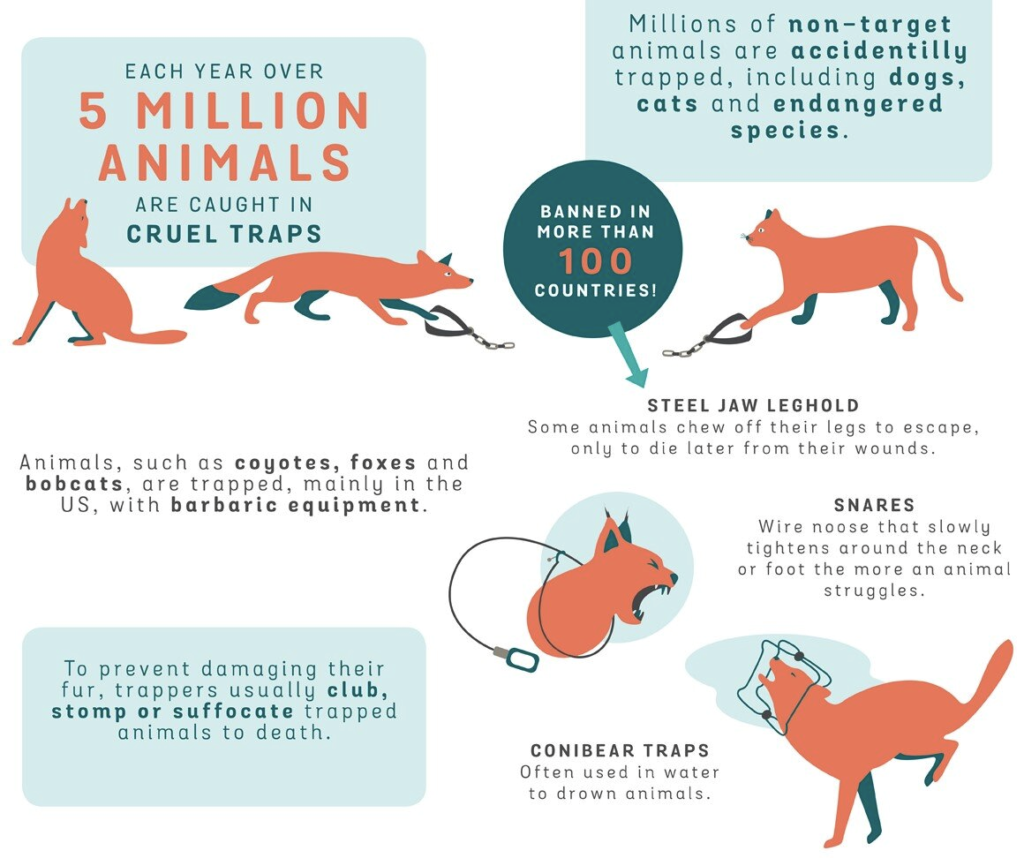
Exotic skins and fur have long been associated with symbols of luxury and opulence. However, the truth behind these materials is far from glamorous.
Countless animals, including snakes, alligators, minks, and foxes, suffer immensely to satisfy the demand for high-end fashion products. They endure lives of confinement, neglect, and brutal deaths, all in the name of creating items that are deemed luxurious and prestigious.
Behind the scenes, the fashion industry conceals the harsh realities of animal exploitation.
Animals are often kept in cramped, unsanitary conditions on fur farms, where they endure extreme stress and deprivation. Their lives are marked by constant fear and suffering, only to meet a violent end through electrocution, gassing, or other inhumane methods.
Similarly, exotic skins are obtained through the merciless hunting and poaching of endangered species, contributing to environmental devastation and biodiversity loss.
Moreover, sheep in wool production often suffer from painful procedures such as mulesing, which involves the removal of strips of skin from the animals’ hindquarters without anesthesia. This practice is carried out to prevent flystrike, a condition caused by flies laying eggs in the folds of the skin.
Despite ongoing efforts to raise awareness and encourage the industry to shift to ethical sources, a number of luxury brands persist in their cruel and unethical sourcing practices.
Luxury Brands Engaging in Animal Harm
Several prominent luxury brands have been repeatedly implicated in the use of animal products obtained through questionable and unethical means.
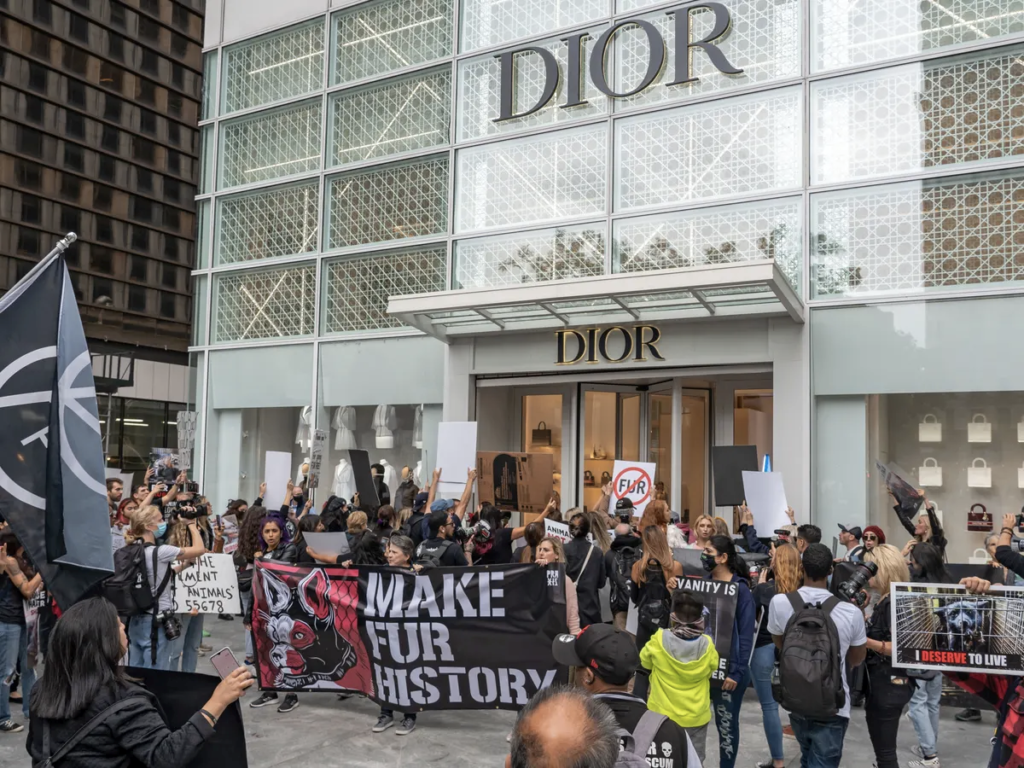
Photograph: Ron Adar/SOPA Images/REX/Shutterstock
Dior
Dior, the renowned French luxury fashion house, has faced criticism for its involvement in the use of various animal products. The brand continues to use animal leather (e.g., calfskin) in its collections, despite the growing popularity of cruelty-free mindset.
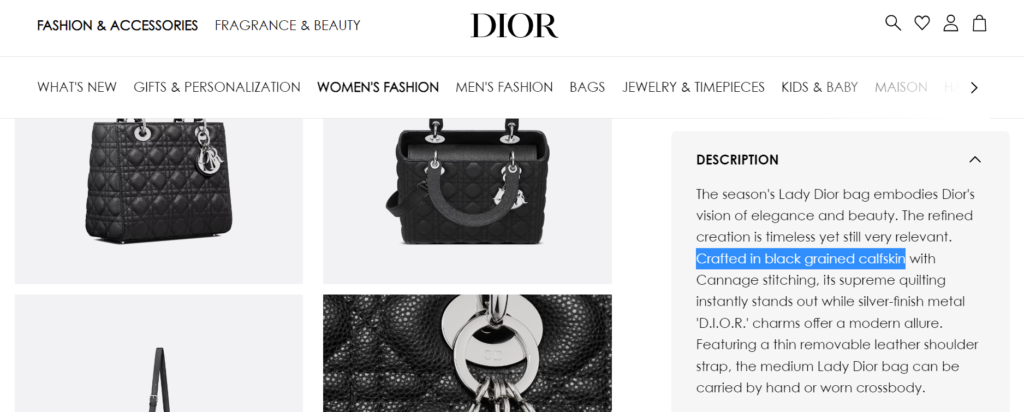
Though animal activists and consumers call for more humane alternatives and the awareness of the industry’s harmful practices is growing, Dior has yet to fully commit to ethical sourcing and animal-friendly alternatives.
Hermès
In the realm of luxury fashion, Hermès has earned a reputation for quality and luxury, yet it continues to use materials sourced through unethical practices.
The brand’s products include leather, fur, exotic animal skin and animal hair, wool, and angora. Much of this material is obtained through hunting, trapping, poaching, and even inhumane farming in appalling conditions.
Activists have expressed outrage regarding Hermès’ lack of commitment to ethical sourcing and animal welfare, yet the brand continues to prioritize profit over progress.
Louis Vuitton
Though the brand has claimed that 100% of its products are made from materials from “humanely farmed” animals, PETA responded that no large-scale fur or exotic skin operation can be considered humane.
Louis Vuitton, a prominent luxury brand, has faced criticism for its use of animal products obtained through questionable means. The company incorporates leather, exotic animal skin, and animal hair into its designs, disregarding the ethical concerns surrounding animal welfare.
Despite the growing demand for cruelty-free alternatives and the availability of innovative synthetic materials, the brand continues to rely on the suffering of animals for its products.
Fendi
Fendi, an Italian luxury fashion house known for its fur creations, has been at the center of controversy regarding its treatment of animals. The brand has faced widespread criticism for its use of fur, particularly sourced from animals such as minks and foxes.
However, contrary to other luxury brands, Fendi, along with LVMH, Imperial College London, and Central Saint Martins, have collaborated on the development of alternative and sustainable materials for fur.
These initiatives aim to reduce the brand’s reliance on animal fur and promote more ethical and sustainable practices. While this collaboration is a step in the right direction, Fendi’s continued use of fur and other animal-derived materials raises questions about the brand’s commitment to animal welfare.
Other Luxury Brands Engaging in Animal Harm
In addition to Dior, Hermès, Louis Vuitton, and Fendi, there are several other luxury brands that have come under scrutiny for their involvement in animal harm.
One such brand is Gucci, a prominent Italian fashion house. Gucci has faced backlash for its use of fur in its collections, with activists and consumers calling for the brand to adopt more ethical practices.
While Gucci announced in 2017 that it would go fur-free starting from its Spring/Summer 2018 collection, it’s vital to note that the brand still utilizes other animal-derived materials such as leather and exotic skins.
After having been called out by Billie Eilish, Oscar de la Renta finally declared to stop selling fur in 2021 after years of pressure from activists, consumers and celebrities (including de la Renta’s widow), but similarly to Gucci, they don’t give up other animal-derived materials.
The Importance of Ethical Fashion Choices
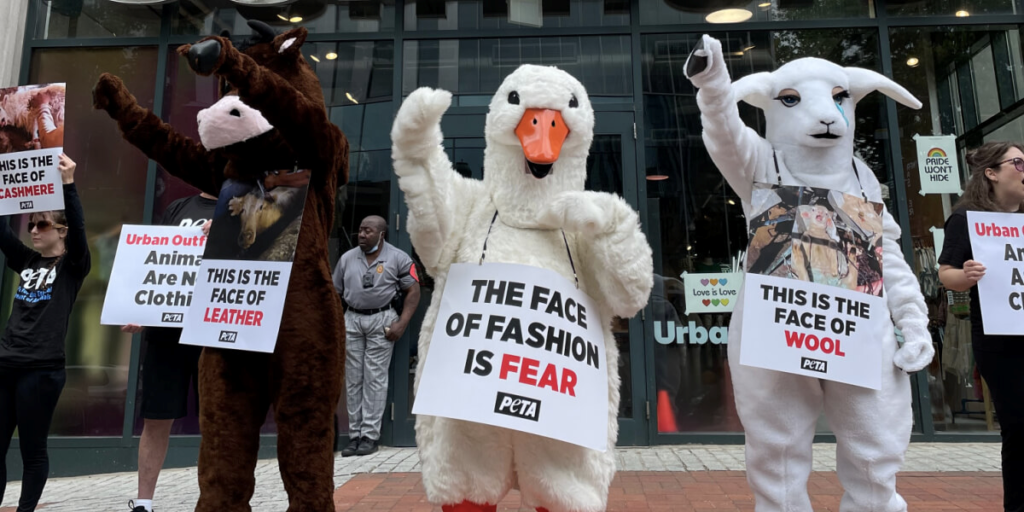
As consumers, we have the power to make a difference through our purchasing decisions. By supporting luxury brands that prioritize ethical practices and animal welfare, we can encourage a shift in the industry towards more compassionate and sustainable fashion.
Numerous fashion labels have embraced cruelty-free alternatives and innovative materials that replicate the look and feel of animal products without causing harm. Synthetic materials like faux fur, vegan leather, and innovative fabrics made from recycled materials offer stylish and sustainable alternatives to traditional luxury materials.
Additionally, there are several certification programs and organizations that help consumers identify fashion brands that uphold high standards of ethical sourcing and animal welfare. For example, the Fur Free Retailer program and the “Leaping Bunny” logo indicate brands that are committed to not using fur or conducting animal testing.
As responsible consumers, we can also educate ourselves about the practices employed by luxury brands and use our voices to demand change. Through social media campaigns, petitions, and boycotts, we can raise awareness and pressure these brands to adopt more ethical and animal-friendly practices.
Ultimately, the fashion industry must acknowledge that true luxury does not come at the expense of innocent lives. It is time for these luxury brands to prioritize compassion, sustainability, and ethical practices, ensuring that their creations embody beauty without cruelty.
Cruelty-Free and Vegan Luxury Alternatives
In recent years, a growing number of luxury brands have recognized the importance of ethical and sustainable practices and have embraced cruelty-free and vegan alternatives. These brands have demonstrated that it is possible to create high-quality, luxurious products without harming animals.
Stella McCartney is a leading example of a luxury brand that has fully embraced ethical and sustainable fashion.
As a staunch advocate for animal rights, McCartney has never used fur or leather in her designs, and she actively promotes the use of innovative materials like vegan leather, recycled fabrics, and plant-based materials.
Her commitment to cruelty-free fashion has garnered praise and admiration from both consumers and industry insiders.
Another brand making waves in the world of cruelty-free luxury is Vaute Couture.
Founded by Leanne Mai-ly Hilgart, Vaute is the first all-vegan fashion label to show at New York Fashion Week. The brand specializes in creating stylish and sustainable outerwear using high-tech, animal-free materials.
Vaute proves that fashion can be compassionate, innovative, and luxurious all at once.
Maison de Mode, a luxury online retailer, is dedicated to curating a collection of ethical and sustainable luxury brands. Their selection includes labels that prioritize animal welfare and use cruelty-free materials.
By offering a platform for these brands, Maison de Mode is helping to redefine the concept of luxury and promote a more ethical approach to fashion.
Conclusion
The fashion industry’s exploitation of animals for profit continues to tarnish the allure of luxury brands.
Despite growing awareness and calls for ethical practices, some prominent labels persist in their ruthless pursuit of profit at the expense of innocent lives. From exotic skins to fur, the dark reality of animal exploitation in the fashion industry cannot be ignored.
Behind the scenes, animals endure lives of confinement, neglect, and brutal deaths to satisfy the demand for high-end fashion products. Despite efforts to raise awareness and shift towards ethical sourcing, these practices persist.
By making informed choices, demanding change, and supporting brands that align with our values, we can redefine the concept of luxury and promote a more ethical approach to fashion—one that embodies beauty without cruelty.
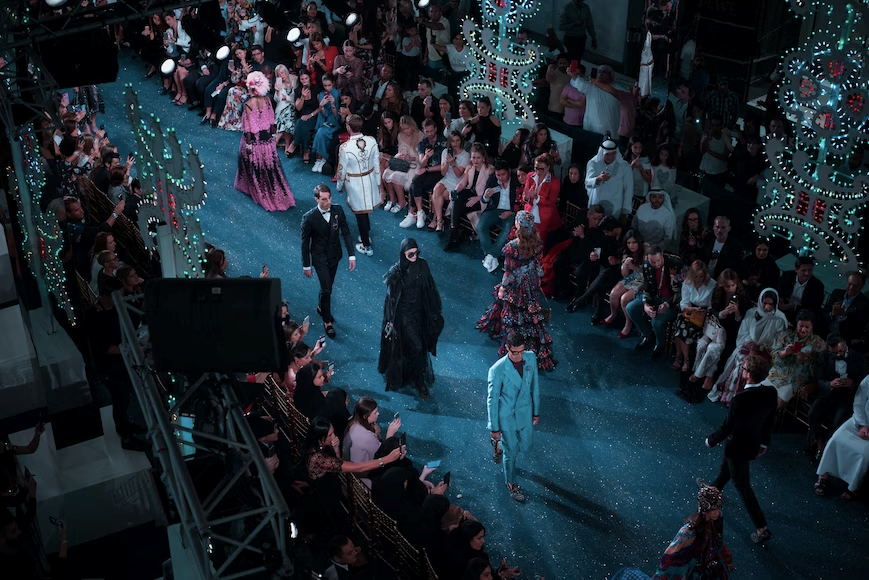



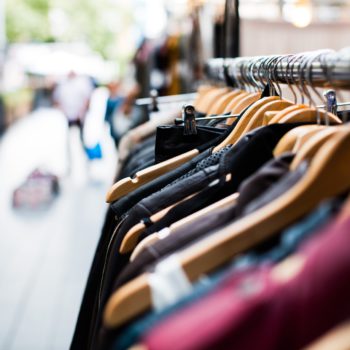
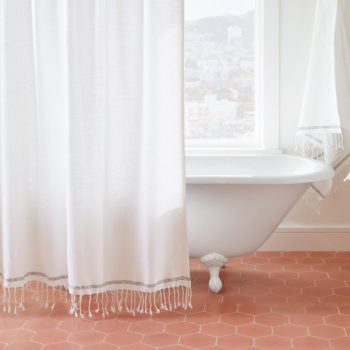

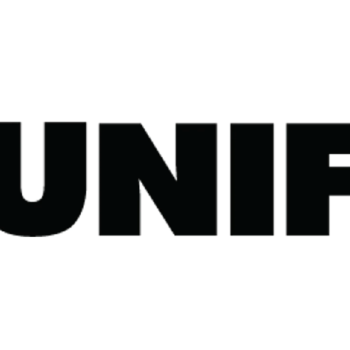
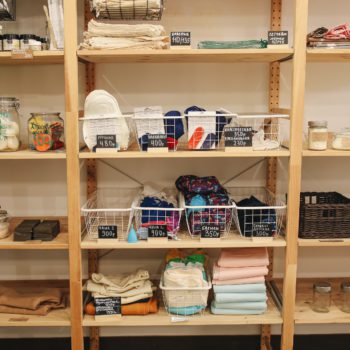




No Comments